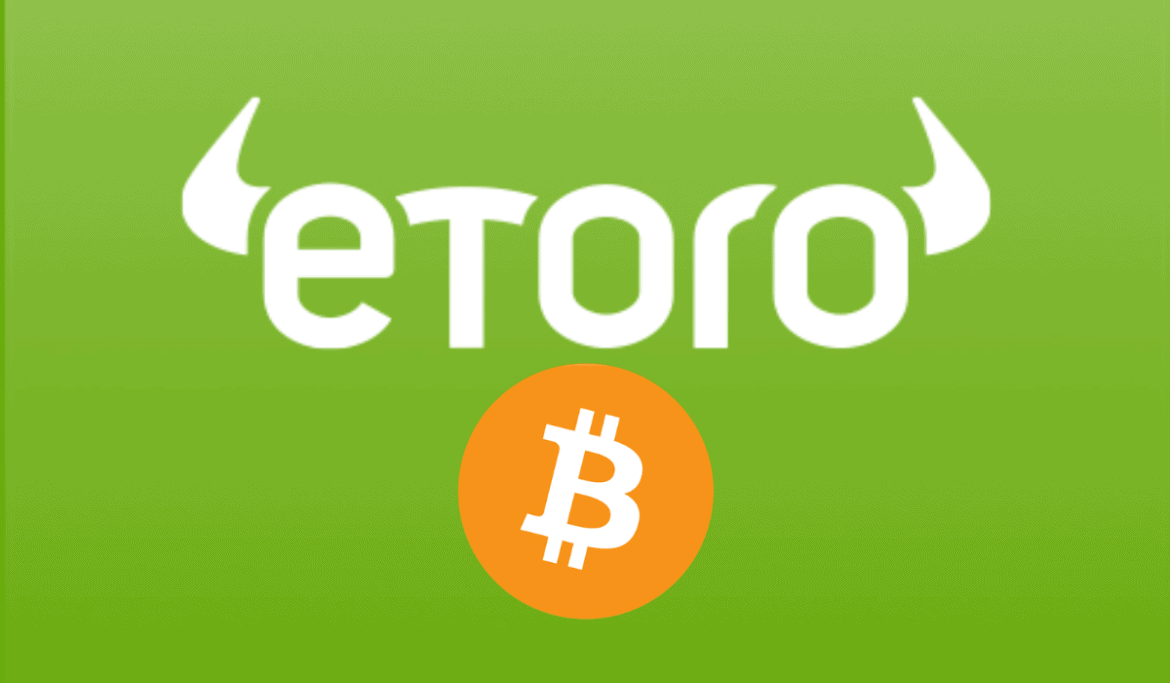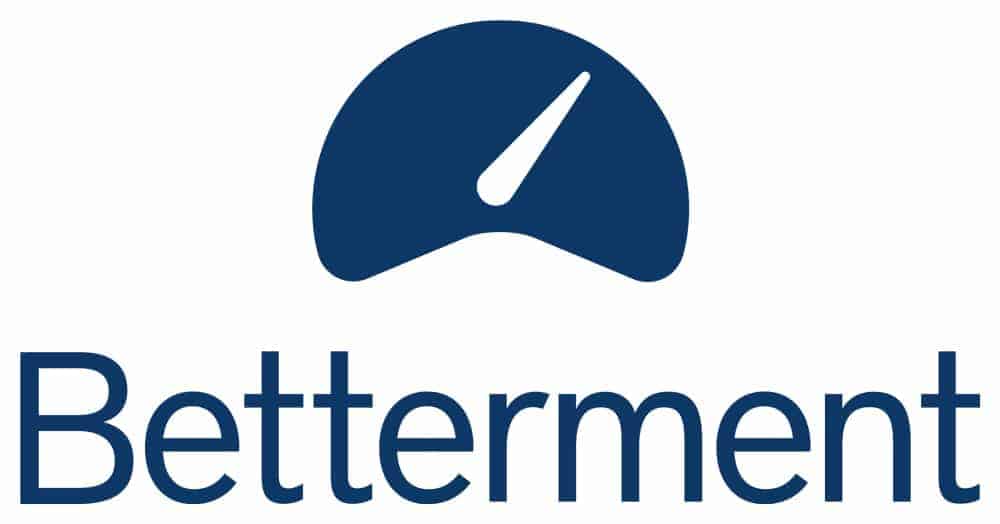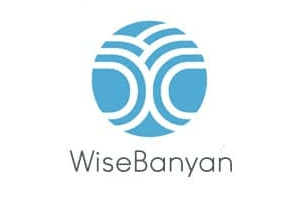7 Best Robo Advisors (Updated 2022)
Robo advisors are a fully automated investment platform that help you create and manage an investment portfolio.
The service is primarily offered by online-based investment brokerages with no physical offices. It was introduced to the investment scene in the last decade, and has gained massive popularity with low and middle-income earners due to its attractive features.
These include incredibly low management fee, zero advice fees, and the promise of a hands-off approach to investing. These robo advisors were established to help address some of the inherent limitations associated with such conventional investment brokerages as the expensive full-service brokers and the unreliable-discount traders.
But how effective are these robo advisors and what portion of your investments should you trust them with? We have scoured the internet, vetting and testing the effectiveness, legitimacy, and reliability of the numerous robo advisors currently available and identified what we consider the best in the industry.
Here is a detailed review of the top 7 robo advisors:
-
-
eToro wallet
Our Rating

- Highly regulated BTC wallet
- #1 cryptocurrency platform
- Accepts Paypal
 67% of retail investor accounts lose money when trading CFDs with this provider. You should consider whether you can afford to take the high risk of losing your money.In the recent past, the number of people seeking to use the robo investors has surged. This is attributed to the low minimum requirements of entry as well as the low fees associated with robo investors.
67% of retail investor accounts lose money when trading CFDs with this provider. You should consider whether you can afford to take the high risk of losing your money.In the recent past, the number of people seeking to use the robo investors has surged. This is attributed to the low minimum requirements of entry as well as the low fees associated with robo investors.How do robo-advisors work?
Ideally, a robo advisor is supposed to help manage, protect, and grow your investments while helping you achieve your goals. Investing through one, therefore, starts with identifying a reputable advisor, registering an account with them, and depositing funds.
The automated broker will ask you some questions designed to help the system understand your investment goals before deciding on the best platform to invest your funds. Some of the most common questions relate to your risk tolerance levels and time limit for the investment. The advisor then proceeds to create an investment portfolio that is automatically managed on the platform.Why use a robo-adviser though?
Robotic investment brokers are ideal for novice and small scale investors who are looking to earn as they learn about the investment world. You will find it useful too if you only have little disposable incomes that would otherwise have been consumed by the high brokerage fees charged by conventional investment brokers. Plus you will also want to use a robo advisor if you lack a solid investment strategy and need help growing your investments.
Pros:
- Considerably low annual management fees
- Invests in highly diversified ETFs, both locally and internationally, thus minimizing risk exposure
- Low minimum deposits required
- Offer versatile investment trading platforms, such as mobile and web traders
- Most rely on Nobel-price winning investment algorithms
Cons:
- Most are rigid given that you cannot alter investments held in the portfolio if the need arises
- They aren’t personalized enough to capture all your investment goals and desires
- No face to face meetings and investment guidance
Best robo-advisors for 2022
1. Betterment
Fees: 0.25% pa
Min Deposit: $0
Top on our list is Betterment, a wildly popular and feature-rich robo advisor. It requires $0 minimum deposit fees and has low annual management fee that start from 0.25%. It also has experienced human investors complement their automated systems in offering investment guidance and helping you create your investment portfolio.
Established in 2008, the robo advisor has established a solid foundation of trust and reliability throughout the years. This is evidenced by the fact that it now has over $8 Billion in assets under management and a 300k+ client base.
Investment and accessibility
Like most other robo advisors, Betterment’s systems together with its expert human advisors will always guide you into establishing an investment portfolio in the less risky Exchange Traded Funds (ETFs). Investing here starts by vetting your goals and time limit through a series of questions after which the system pools together several investments to create your investment portfolio.
The robo advisor’s management team also understands the impact that technological adeptness in such a field plays in not just making their products appealing but also in guaranteeing user-friendliness. They have since launched iOS and Android app versions of their systems with full-service features like depositing funds and setting up a portfolio.
Our Rating
- Unlimited access to a financial adviser for accounts with $100k+ at 0.4$ management fee
- Supports automatic rebalancing and tax loss harvesting
- No account minimum encourages investments from the low-income earners
- Doesn’t support direct indexing or single stock diversification
2. WealthFront
Our Rating
- Transparent pricing
- Automated portfolio rebalancing and daily tax loss harvesting
- Provides for direct indexing for accounts with an operating balance over $10k
- Doesn’t grant investors access to a human financial expert
3. WiseBanyan
Fees: 0.00% pa
Min Deposit: $1
WiseBanyan is a new generation robo advisor and one of our favorite free investment advisor. Its key selling points include zero management fee and a low minimum deposit of $1. Like most other brokers, WiseBanyan’s fully automated systems exercise discretion on creating and managing your investment portfolio from a pool of well-performing exchange-traded Funds.
Wealth maximization mission
WiseBanyan is dedicated to helping its clients maximize wealth through minimal fees.
This starts with eliminating the management fee and allowing for tax loss harvesting. Creating individual and retirement accounts with WiseBanyan is also free and for as little as $3 per month, the robo advisor gives you access to even more lucrative ETFs. You are also free to create highly customized portfolios that can be added to your already existing investment portfolio.
Our Rating
- No management fee and low minimum deposit makes the advisor beginner-friendly
- Provides goal-based investment planning tools to help decide on the most suitable investment for you
- Provides investment portfolio review and customization
- Premium services like tax loss harvesting attract additional charges
- Only has two account options, individual and retirement investment accounts
4. Charles Schwab
Fees: 0.00 pa
Min Deposit: $5000
Established in 2015, Charles Schwab is probably the most recent entrant into the robo advisor scene and also one of the fastest growing brands. The last four years have seen the advisor accumulate over $25 billion in assets under management, pooled in by over 200k clients. But this is not the only reason its features on our list of best robo advisors. It makes it here because it doesn’t charge a management fee for all accounts and allows for the creation of multiple investor accounts revolving around tenancy and property ownership.
Deposit and premium services
To access Charles Schwab's zero-fee feature, however, you will need a minimum initial deposit of $5k. Like most other robo advisors, Charles Schwab sets you up with a Modern Portfolio Theory (MTP) quiz tool. It assesses your investment goals before investing this deposit in a customized portfolio that pools in several ETFs. Additionally, the advisor offers such premium services as automatic rebalancing and tax loss harvesting.
The only difference between Charles Schwab and the rest of the advisors is that Charles requires that you maintain $50k+ in operating balances if you hope to enjoy the free tax loss harvesting service.
Our Rating
- A wide selection of possible ETFs to choose from
- Automated rebalancing and availability of tax loss harvesting features
- Highly customizable investment portfolios
- The $5,000 account minimum is quite prohibitive
- Their tax loss harvesting feature is highly discriminative and only available to accounts with $50k balances
5. Personal Capital
Fees: 0.49%-0.89% pa
Min Deposit: $25,000
Personal Capital stands out due to the fact that investment advice when creating an investment portfolio is advanced by an expert human investor while the rest rely on the automated MPT system. The advisor is also biased towards medium to high-income earners as they demand a minimum investment of $25,000 for all their accounts.
Their management fee is equally high, way beyond what we consider the industry baseline, as it ranges between 0.49% and 0.89% per annum depending on the amounts of assets under management.
Multiple accounts and investment diversification
Personal capital covers what most individuals might consider its shortcomings in high fees and minimum deposits with the establishment of one of the largest pool of investor accounts and diversifying your investment base. For instance, while every other robo advisor will only create your portfolio by drawing from several ETFs, Personal capital offers a mix of both ETFs and individual stocks.
Our Rating
- Creates room for investments in the lucrative individual stocks
- Readily available and dedicated customer support team
- The human experts are better suited to offer investment advice than the preprogrammed robots
- High account management fees
- Not suitable for beginners and low-income earners that are just starting out
6. M1 Finance
Fees: 0.00% pa
Min Deposit: $0
M1 Finance is probably the most versatile robo advisor on this list based on the level of customization you are given when coming up with an investment portfolio. M1 Finance lets you use their innovative “Pies and Slices” technique in coming up with an investment portfolio. Their systems furnish you with a pie chart that has a collection of well-performing investment vehicles.
Decide the percentage of your cash you want to allocate each of these investments and fund your account. Aren’t sure about the investment portfolio creation process? Consider settling with a pre-designed, and highly customizable, pie from M1 expert investment advisory team.
Fees and minimum deposit
M1 Finance is totally free. It doesn’t charge a management fee on your assets under management and neither do they demand specific initial deposits or minimum account operating balances. This versatility extends to the appreciation of technology where the robo advisor complements their web trader with an equally effective mobile app.
Our Rating
- No fees and commissions
- Makes it possible to create a customized and highly diversified portfolio
- Availability of custom made portfolios make it beginner friendly
- Its investment portfolio doesn’t take mutual funds into account
- Doesn’t offer tax loss harvesting feature
7. Wealthsimple
Fees: 0.4%-0.5% pa
Min Deposit: $0
Wealthsimple is probably the most inclusive robo advisor we have come across yet. The level of versatility and the range of investment options offered by the advisor is also unmatched. To make it appealing to all persons from all walks of life, the advisor starts by eliminating the minimum deposits needed to open an account.
It also makes it possible to create the Halal-compliant accounts for individuals of the Islamic faith. Additionally, the broker won’t charge management for any of the accounts opened here.
Automation and expert advice
In addition to having their automated systems help you create an investment portfolio, the robo advisor team provides all its clients unconditional access to their team of expert advisors. The only downside to this is that they consider this a paid premium service that attracts an advisory fee of between 0.5% for accounts with an operating balance of less than $100,000 and 0.4% for accounts with higher deposits.
Our Rating
- Unconditional access to human advisors for all clients
- Social inclusivity through the creation of halal-compliant accounts
- No minimum deposit amount for all account types
- One may consider the charges on some premium services like advisory fee quite high
- Limited personal finance tools
How do you decide on the best robo advisor for you?
- Trading cost: You are probably looking for robo advisor because you want to save on the trading costs charged by most other financial services providers. Pay close attention to the fees imposed on your capital investment and the intervals at which this fee applies. Also look out for possible hidden fees like deposit and withdrawal processing fees.
- Financial advice and training tools: Robo advisors were not meant to offer financial advice. This hasn’t, however, stopped them from advancing trading guidance in the form of blogs and tutorial videos. And such goes a long way in helping improve your knowledge with regards to the money markets and investment industry.
- Affiliation with reputable investment brokers: While a standalone robo advisor may have competitive rates, you are better off trading with an advisor that is closely related to a full service or discount broker. Should your priorities change and yearn for more personalized investment services, you will have a rather seamless transition.
- Minimum deposit amounts: Some robo advisors like Personal Capital are way out of touch with low-income earners as they demand $25,000 minimum investments while others like WiseBanyan don’t have a minimum deposit requirement.
- Portfolio allocation: Where will your robo advisor be investing your cash, how lucrative are its chosen niches, and how diversified is the portfolio? Ensure you are comfortable with the answers to these questions before committing your funds to the advisor.
Final word
You don’t have to settle for high exorbitant management and advisory fees imposed by the full-service brokers. And neither do you have to struggle with an investment profile creation when dealing with a discount broker. Robo advisors are inexpensive and their automated investment portfolio creation process guarantees value for money to their clients. The new investment platform was specially designed to address these investment brokerage house limitations. Its also supposed to add on to their effectiveness by granting investors access to some of the most effective investment strategies. More importantly, they should help mitigate losses through diversification of investments in the less volatile Exchange traded funds niche.
eToro wallet
Our Rating

- Highly regulated BTC wallet
- #1 cryptocurrency platform
- Accepts Paypal
 67% of retail investor accounts lose money when trading CFDs with this provider. You should consider whether you can afford to take the high risk of losing your money.
67% of retail investor accounts lose money when trading CFDs with this provider. You should consider whether you can afford to take the high risk of losing your money.Glossary of Investment Terms
BondsA bond is a loan made to an organization or government with the guarantee that the borrower will pay back the loan plus interest upon the maturity of the loan term. It can be advanced to the national government, corporate institutions, and city administration. It is an investment class with a fixed income and a predetermined loan term.
Mutual FundA mutual fund is a professionally managed investment vehicle that pools together funds from numerous investors and invests it in such securities as stocks, bonds, and other money market instruments. They are headed by portfolio managers who determine where to invest these funds. They are highly regulated and invest in relatively low-risk money markets and in turn post lower rates than other aggressive managed funds.
P2P LendingPeer-to-peer lending (p2p lending) is a form of direct-lending that involves one advancing cash to individuals and institutions online. A P2P lending platform, on the other hand, is an online platform connecting individual lenders to borrowers.
BitcoinBitcoin is the legacy cryptocurrency developed on the Bitcoin Blockchain technology. It is a new form of money primarily developed to solve some of the inherent challenges associated with fiat currencies like inflation and over-production. It is virtual (online) cash that you can use to pay for products and services from bitcoin-friendly stores.
Index FundsAn index fund refers to the coming together of individuals to pool in funds that are then invested in the stock and money markets by professional money managers. The only difference between an index fund and a mutual fund is that the index fund follows a specific set of rules that track specific investments and index stocks.
ETFsAn Exchange-traded fund refers to an investment vehicle that is publicly traded in the stock exchange markets – much like shares and stocks. The fund is expert-managed and its portfolio comprises of such investment products as stocks, bonds, commodities, and more money market instruments like currencies.
RetirementRetirement refers to the time you spend away from active employment and can be voluntary or occasioned by old age. In the United States, the retirement age is between 62 and 67 years.
Penny StocksPenny Stocks refer to the common shares of relatively small public companies that sell at considerably low prices. They are also known as nano/micro-cap stocks and primarily include any public traded share valued at below $5.
Real EstateReal Estate can be said to be the land and buildings on a given property as well as other rights associated with the use of the property like the air rights and underground rights. Real estate can be either commercial if the land, property, and buildings are used for business purposes or residential if they are used to non-business purposes – like building a family home.
Real Estate Investment Trust (REIT)REITs are companies that use pooled funds from members to invest in income-generating real estate projects. While a REIT may specialize in one real estate niche, most diversify and invest in as many high-income real estate projects as possible. They are especially interested in commercial real estate projects like warehouses, prime office buildings, residential apartments, hotels, timber yards, and shopping malls.
AssetAsset simply refers to any resource of value or a resource that can be owned and controlled to produce positive value by an individual or business.
BrokerA broker is an intermediary to a gainful transaction. It is the individual or business that links sellers and buyers and charges them a fee or earns a commission for the service.
Capital GainCapital gains refer to the positive change in the price of a capital asset like shares and stock, bonds or a real estate project. It is the difference between the current selling price of the asset and its lower original buying price and it is considered a taxable income.
Hedge FundA hedge fund is an investment vehicle that pools together funds from high net worth individuals and businesses before having professional money managers invest it in highly diversified markets. The difference between mutual and hedge funds is that the later adopts highly complicated portfolios comprised of more high-risk high-return investments both locally and internationally.
IndexAn index simply means the measure of change arrived at from monitoring a group of data points. These can be company performance, employment, profitability, or productivity. Observing a stock index, therefore, involves measuring the change in these points of a select group of stocks in a bid to estimate their economic health.
RecessionA recession in business refers to business contraction or a sharp decline in economic performance. It is a part of the business cycle and is normally associated with a widespread drop in spending.
Taxable AccountsTaxable Account refers to any investment account that invests in shares and stocks, bonds and other money market securities. The account is offered by a brokerage company and you are obliged to report and pay taxes on the investment income each year.
Tax-Advantaged AccountsA tax-advantaged account refers to savings of investment accounts that enjoy such benefits as a tax exemption or deferred tax payment. Roth IRA and Roth 401K are examples of tax-exempt accounts whose contributions are drawn from after-tax incomes with the yields generated from investing funds therein being tax-exempt. Traditional IRA, 401K plan and college savings, on the other hand, represent tax-deferred accounts. Their contributions are deductible from your current taxable incomes but you get to pay taxes on their accrued incomes.
YieldYield simply refers to the returns earned on the investment of a particular capital asset. It is the gain an asset owner gets from the utilization of an asset.
Custodial AccountsA custodial account is any type of account that is held and administered by a responsible person on behalf of another (beneficiary). It may be a bank account, trust fund, brokerage account, savings account held by a parent/guardian/trustee on behalf of a minor with the obligation to pass it to them once they become of age.
Asset Management CompanyAn Asset Management Company (AMC) refers to a firm or company that invests and manages funds pooled together by its members. Like mutual or hedge funds, the AMC creates diversified investment portfolios that comprise of shares and stocks, bonds, real estate projects, and other low and high-risk investments.
Registered Investment Advisor (RIA)A registered investment advisor is an investment professional (an individual or firm) that advises high-net-worth (accredited) investors on possible investment opportunities and possibly manages their portfolio.
Fed RateThe fed rate in the United States refers to the interest rate at which banking institutions (commercial banks and credit unions) lend - from their reserve - to other banking institutions. The Federal Reserve Bank sets the rate.
Fixed Income FundA fixed-income fund refers to any form of investment that earns you fixed returns. Government and corporate bonds are prime examples of fixed income earners.
FundA fund may refer to the money or assets you have saved in a bank account or invested in a particular project. It may also refer to the collective basket of resources pooled from different clients that are then invested in highly diversified income-generating projects.
Value InvestingValue investing is the art of using fundamental analysis to identify undervalued shares and stocks in the market. It involves buying these shares at the current discounted prices and hoping that a market correction pushes them up to their intrinsic value effectively resulting in massive gains.
Impact InvestingImpact investing simply refers to any form of investment made with the aim of realizing financial returns while positively impacting the society, environment or any other aspect of life in the process. Investment in solar projects and green energy, for instance, posts profits and helps conserve the environment.
Investing AppAn investment App is an online-based investment platform accessible through a smartphone application. It lets you save and invest your funds in a preset portfolio that primarily consists of shares and stocks, bonds, ETFs, and currencies based on your risk tolerance.
Real Estate CrowdFundingReal Estate crowdfunding is a platform that mobilizes average investors – mainly through social media and the internet – encourages them to pool funds, and invests them in highly lucrative real estate projects. It can be said to be an online platform that brings together average investors and lets them enjoy real estate projects previously preserved for high net worth and institutional investors.
FAQs
What is a robo advisor?
It is an online based and fully automated investment platform that helps you create a diversified investment portfolio and automatically manages it on your behalf. Robo advisors are quite inexpensive and most require minimal deposits thereby making them beginner friendly.
How much does a robo advisor cost?
You don’t pay to acquire a robo adviser, they are free but some might set minimum deposit amounts that you must part with if you hope to either use their service or gain access to all their services. Most will also have a management fee that ranges from 0.25% to 1%/yr of your total assets under management.
Who can invest with a robo advisor?
Ideally, the robo advisors were meant to serve the young and tech-savvy investors with minimal disposable incomes. As they became popular, however, this perception has changed and they now attract the attention of every individual that’s looking to invest in a cost-friendly environment, regardless of their disposable income and experience.
Why should I invest in a robo advisor?
Apart from the fact that they probably are the most cost-efficient investment platforms out there, you might also want to consider the fact that they give you access to investment strategies that have for the longest time been a preserve of the elite fund management firms at a fraction of their management fees.
How is the robo advisor different from traditional investment broker?
First off, robo advisors services are fully automatic, right from the selection of investment opportunities to the management of your invested funds. Unlike full-service brokers that have their human investment specialists constantly calling and pushing investment options to your face, there is little to no human involvement in deciding on investments and managing them when it comes to robo advisors.
Are all the robo advisors the same?
No, the only thing most of these robo advisors have in common is the fact that they invest in index exchange-traded funds. Some like Personal Capital have since deviated from course and invest primarily in individual stocks. They also differ in the number of investment customization features offered to their clients. For instance, some will have automated rebalancing and tax loss harvesting features while others won’t.
Cryptocurrency – A-Z Directory

Edith Muthoni
Edith Muthoni
View all posts by Edith MuthoniEdith is an investment writer, trader, and personal finance coach specializing in investments advice around the fintech niche. Her fields of expertise include stocks, commodities, forex, indices, bonds, and cryptocurrency investments. She holds a Masters degree in Economics with years of experience as a banker-cum-investment analyst. She is currently the chief editor, learnbonds.com where she specializes in spotting investment opportunities in the emerging financial technology scene and coming up with practical strategies for their exploitation. She also helps her clients identify and take advantage of investment opportunities in the disruptive Fintech world.
WARNING: The content on this site should not be considered investment advice. Investing is speculative. When investing your capital is at risk. This site is not intended for use in jurisdictions in which the trading or investments described are prohibited and should only be used by such persons and in such ways as are legally permitted. Your investment may not qualify for investor protection in your country or state of residence, so please conduct your own due diligence. Contracts for Difference (“CFDs”) are leveraged products and carry a significant risk of loss to your capital. Please ensure you fully understand the risks and seek independent advice. This website is free for you to use but we may receive commission from the companies we feature on this site.
Copyright © 2026 | Learnbonds.com
We use cookies to ensure that we give you the best experience on our website. If you continue to use this site we will assume that you are happy with it.Scroll Up



































